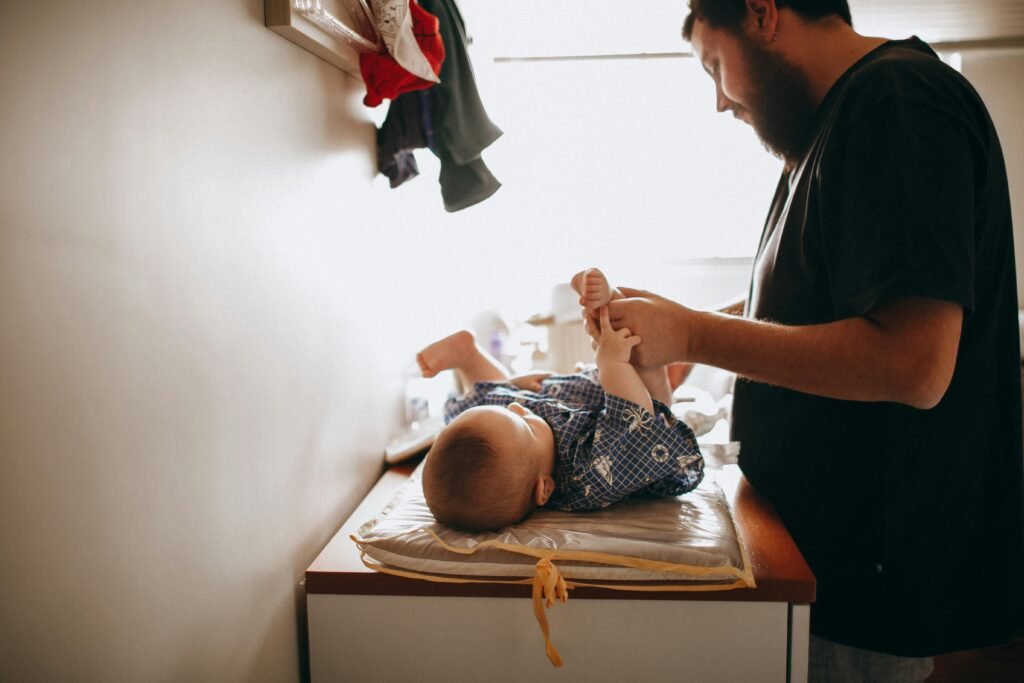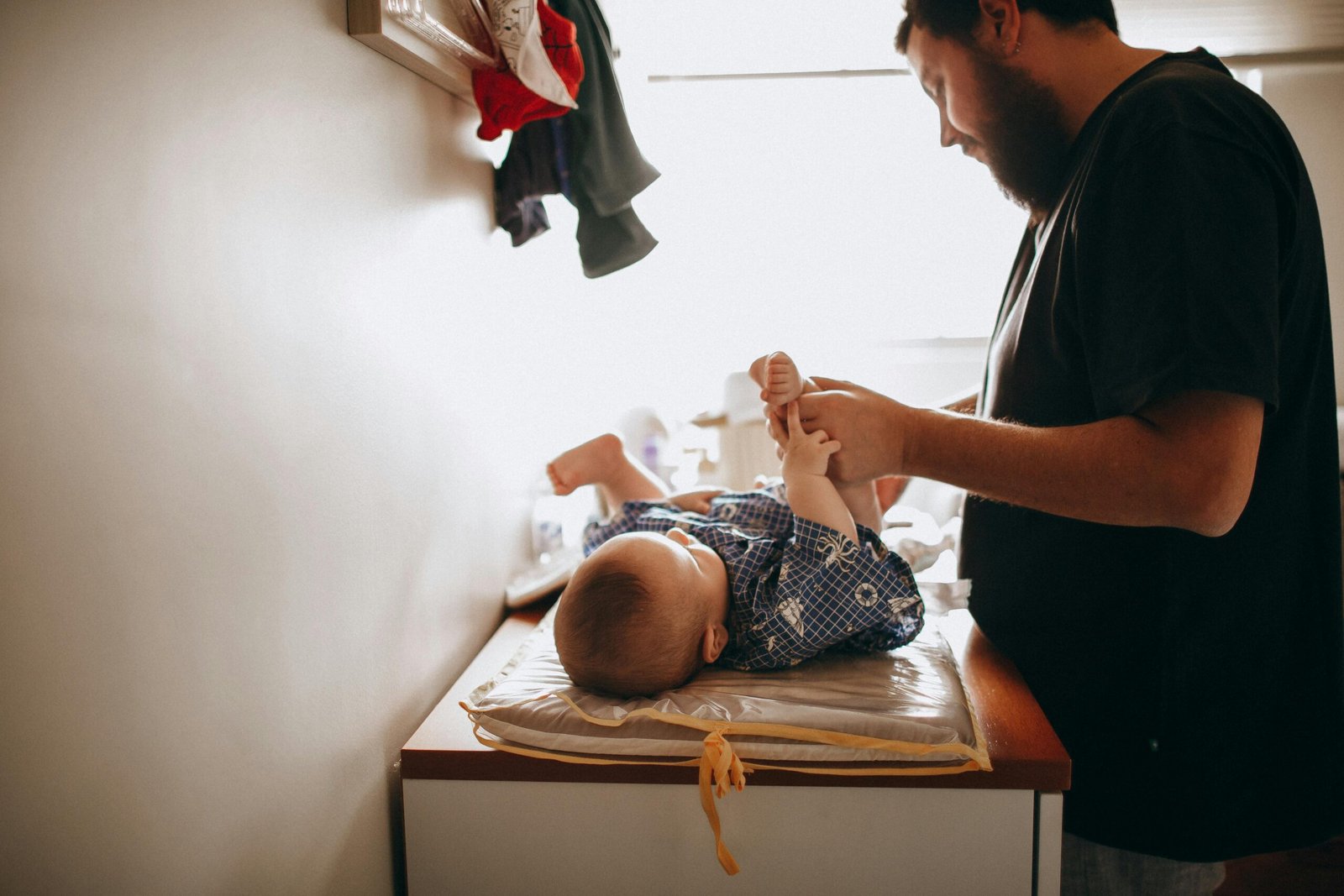
Establishing a solid routine for your newborn isn’t just about creating structure—it’s about nurturing your baby’s growth and well-being, giving them the stability they need to thrive. Routines have a calming effect on babies, providing them with a sense of security, which is essential for their physical, emotional, and cognitive development. In this article, we’ll explore why newborn routines are vital and how to create a balance that promotes peace and growth for both you and your baby.
Why Routines Matter for Newborns
Newborns come into the world without a clear understanding of day and night. Their internal clock, known as the circadian rhythm, takes time to develop. By introducing a routine early on, you can help your baby adjust more easily to the world outside the womb. A consistent daily rhythm helps regulate their sleep patterns, feeding times, and emotional state, contributing to better sleep quality and a more peaceful baby.
Moreover, babies thrive on predictability. Routines offer a sense of comfort, reducing anxiety and fussiness because they begin to understand what to expect next. This is why many parents notice that their baby becomes more relaxed and easier to manage once a predictable routine is in place.
Benefits of a Routine
- Encourages Healthy Sleep Patterns
Establishing consistent bedtime rituals and nap schedules can help your newborn sleep longer and more soundly. Babies feel safe when their days are structured, helping them transition between sleep and wakefulness more smoothly. Over time, a routine will help your baby differentiate between day and night, which is key to sleeping through the night. - Promotes Feeding Success
Whether you’re breastfeeding or formula-feeding, a regular feeding routine ensures that your baby gets the nutrition they need to grow. Predictable feeding schedules reduce hunger-related fussiness and help establish a bond between parent and child. With time, you’ll learn your baby’s hunger cues, and they’ll respond better to feeding times, reducing the stress around mealtimes. - Reduces Stress and Anxiety
Babies feel secure when they know what to expect. A well-established routine helps reduce their stress levels, leading to fewer meltdowns and a calmer demeanor. It also reduces parental stress—knowing your baby’s needs are met brings confidence and peace of mind. - Strengthens Parent-Baby Bond
Routine moments such as feeding, bath time, and bedtime are not just about caregiving; they are golden opportunities for bonding. Eye contact, gentle touches, and the soothing sound of your voice during these routine activities all strengthen your connection with your newborn, fostering emotional closeness.
How to Build a Gentle Routine
- Start Simple
In the early weeks, your newborn will be adjusting to life outside the womb. Start by focusing on a few key activities—feeding, sleeping, and diaper changes. Observe your baby’s natural patterns, and begin building a flexible routine around those. - Create Soothing Sleep Cues
Establish a peaceful bedtime routine that might include a warm bath, soft music, or gentle rocking. Consistency with sleep cues helps signal to your baby that it’s time for rest. Keep the sleep environment cozy—dim lights, white noise, and a comfortable crib to foster a tranquil sleep space. - Feed on Cue but Set a Rhythm
While newborns need to feed frequently, gradually setting a rhythm for feeding can help you anticipate their needs. Feeding on demand is important during the early weeks, but by gently encouraging regular intervals, you establish a natural routine. - Incorporate Playtime and Interaction
Even though newborns sleep a lot, there are brief windows of alertness during the day. Use this time for gentle play, tummy time, or simply talking and making eye contact. This not only helps with bonding but also stimulates your baby’s development.
Balancing Flexibility and Structure
While routines provide essential structure, it’s important to remain flexible. Every baby is different, and their needs will change as they grow. Some days will naturally deviate from the routine due to growth spurts, teething, or illnesses. Don’t stress about the occasional shift—what matters is consistency over time.
Also, keep in mind that newborns change rapidly in the first few months. As your baby develops, so will their routine. A routine that works for a 2-week-old might need adjustments by the time your baby is 3 months old.
My Personal Experience
When I first became a parent, I was overwhelmed with advice about setting up routines. Initially, it felt impossible to keep things predictable. However, I soon realized that small, consistent steps made all the difference. Creating a soothing nighttime ritual—bath, gentle music, and dim lights—helped my baby sleep longer and more peacefully. Not only did it help her, but it also gave me the confidence that I was providing her with what she needed most: security and love. Over time, these routines became second nature, creating a peaceful environment where both baby and parent thrived.
Conclusion
Routines are a powerful tool for establishing peace, security, and growth for newborns. By focusing on predictable sleep, feeding, and playtime, you’ll set the stage for healthy development while building a stronger bond with your baby. Remember, consistency brings calm, but flexibility is key to adapting as your baby grows.

